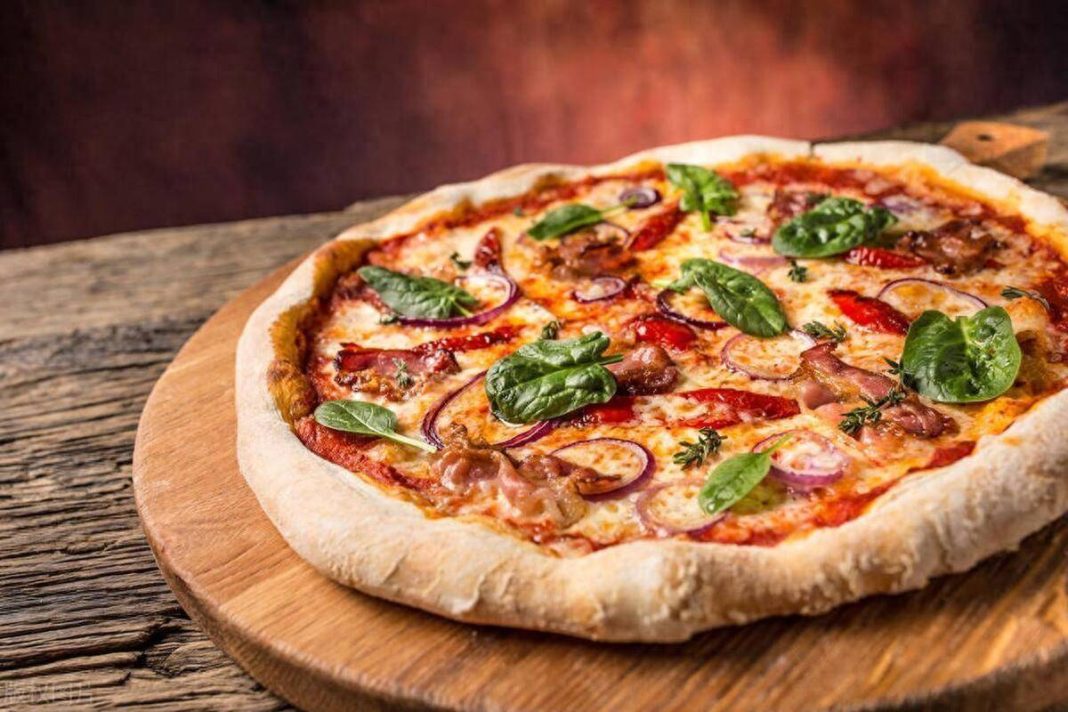Friends who are losing weight should all hope to enjoy delicious food to the fullest while having a wonderful figure.
If a certain food contains more energy than the energy it consumes for digestion, absorption, and metabolism, no matter how much you eat, you won’t gain weight. Are there foods that make you thinner the more you eat?
In theory, there might be, what are they? Actually, it is what everyone calls “negative calorie foods” or “negative calorie foods”. In this article, we will discuss the related issues.
What is the thermic effect of food?
Speaking of “negative calorie foods,” we must first talk about the thermic effect of food.
The thermic effect of food refers to the increase in energy expenditure caused by eating, that is, the energy required for digesting, absorbing, and metabolizing a certain food, which is a part of the body’s daily energy expenditure.
So how does digesting, absorbing, and metabolizing food require energy? For example, the chewing of teeth, the contraction and relaxation of the stomach, peristalsis in the intestines, the secretion of various digestive fluids and enzymes, all require energy.
Pizza. Delicious fresh Italian pizza with bacon, cheese, and spinach
How significant is the thermic effect of food?
The thermic effect of food accounts for approximately 0% to 30% of the energy of the food. The thermic effect of carbohydrates, fats, and proteins accounts for about 5%-6%, 4%-5%, and 30%-40% of their energy, respectively. The thermic effect of a mixed diet is around 10% of its energy.
Let’s take carbohydrates as an example to make it clearer.
1 gram of carbohydrates contains 4 calories. If you eat 100 grams of carbohydrates, the energy content is 400 calories. The thermic effect of these 100 grams of carbohydrates is approximately 20-24 calories.
So regardless of whether you are eating pure carbohydrates, pure fats, pure proteins, or a mixed diet, the thermic effect only represents a small portion of the energy content of the food, at most 30%, never exceeding the energy content of the food itself.
So all those rumored foods like celery, spinach, apples, kiwis, and oats that supposedly make you thinner the more you eat are definitely not negative calorie foods!
Collection of isolated fruits and vegetables including oranges, apples, berries
So, what exactly are negative calorie foods?
Ice water is theoretically considered a negative calorie food.
The Chinese Dietary Guidelines recommend that adult men and women should drink 1700 milliliters and 1500 milliliters of water per day, respectively. If you drink this amount and it’s ice-cold water at 0°C, your body will need to expend approximately 55.5-62.9 calories to warm it up to body temperature. Therefore, water can be considered a negative calorie food that makes you thinner the more you drink.
However, the energy in 6-7 cashew nuts (about 10 grams) is around 55.9 calories, which is comparable to the energy expended by drinking 1500 milliliters of ice-cold water. Moreover, a box of non-fried potato chips has over 500 calories. So, instead of increasing energy expenditure by drinking water, it’s better to control the consumption of high-energy foods.
Some friends might say, “Why not just drink more water? I’m not afraid of feeling uncomfortably full or going to the bathroom frequently. Besides, I don’t have any discomfort in my stomach when drinking ice water.”
Transparent ice cubes providing a cool sensation in summer
Here’s a little secret for you. Drink 300-500 milliliters of water before each meal to temporarily occupy stomach volume, eat less, and reduce calorie intake. In simpler terms, fill your stomach with water to feel full and reduce energy intake.
Protein-rich foods have a high thermic effect
Eat more for weight loss?
The thermic effect of protein-rich foods is much higher than that of carbohydrates and fats. Would you like to eat more protein and reduce carbohydrates and fats moderately for weight loss?
That’s actually a feasible idea.
Studies have shown that obese individuals who followed a high-protein diet for 6 months experienced a significant weight loss compared to those on a normal protein diet. Even after 1 year of follow-up, the high-protein diet group still had a 10% greater reduction in abdominal fat compared to the control group.
Therefore, the “Chinese Medical Nutrition Therapy Guidelines for Overweight/Obesity (2021)” also recommends using a high-protein diet for weight loss. The daily protein intake should exceed 20% of the total energy intake or 1.5g/kg per day, but generally not exceed 30% of the total energy intake or 2.0g/kg per day.
For women trying to lose weight, it is recommended to consume 1500 calories per day. Below is an example of a 1500-calorie diet plan with around 90 grams of protein, providing 24% of the energy content. This can be a reference for females aiming to lose weight.
Every day, have 1 egg, 2 packs of skim milk (480 ml), 8 shrimps, 100 grams of lean meat (about 7 rolls of lean beef rolls), 25 grams of dried tofu skin (about 6-7 strips), 2 slices of bread (100 grams), 260 grams of rice, 500 grams of vegetables, 20 grams of fat, totaling around 1500 calories and approximately 90 grams of protein.
Conclusion:
While ice water may theoretically be considered a negative calorie food, it’s more practical to control your diet, consume fewer high-energy foods, engage in more physical activity, and avoid the discomfort some experience from drinking ice water.
Therefore, if you want to lose weight, don’t fantasize about getting thinner by eating negative calorie foods. It’s better to have a balanced diet and engage in moderate exercise.
Source: Science Popularization China
Editor: Zhuhai Market Supervision Team
Disclaimer: All rights belong to the original author. If there is any copyright infringement, please contact the backend, and we will handle it within 24 hours.


